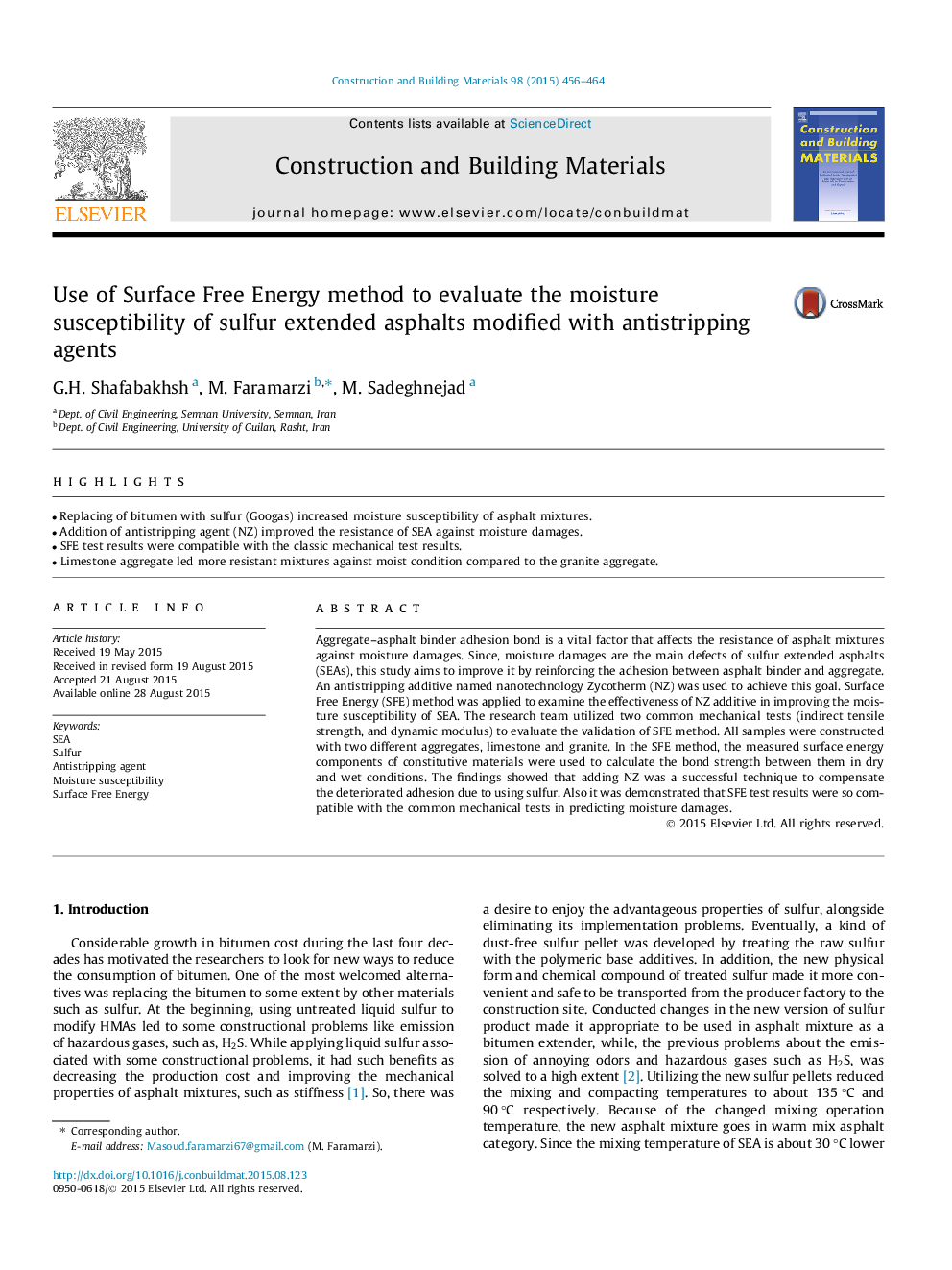| Article ID | Journal | Published Year | Pages | File Type |
|---|---|---|---|---|
| 256618 | Construction and Building Materials | 2015 | 9 Pages |
•Replacing of bitumen with sulfur (Googas) increased moisture susceptibility of asphalt mixtures.•Addition of antistripping agent (NZ) improved the resistance of SEA against moisture damages.•SFE test results were compatible with the classic mechanical test results.•Limestone aggregate led more resistant mixtures against moist condition compared to the granite aggregate.
Aggregate–asphalt binder adhesion bond is a vital factor that affects the resistance of asphalt mixtures against moisture damages. Since, moisture damages are the main defects of sulfur extended asphalts (SEAs), this study aims to improve it by reinforcing the adhesion between asphalt binder and aggregate. An antistripping additive named nanotechnology Zycotherm (NZ) was used to achieve this goal. Surface Free Energy (SFE) method was applied to examine the effectiveness of NZ additive in improving the moisture susceptibility of SEA. The research team utilized two common mechanical tests (indirect tensile strength, and dynamic modulus) to evaluate the validation of SFE method. All samples were constructed with two different aggregates, limestone and granite. In the SFE method, the measured surface energy components of constitutive materials were used to calculate the bond strength between them in dry and wet conditions. The findings showed that adding NZ was a successful technique to compensate the deteriorated adhesion due to using sulfur. Also it was demonstrated that SFE test results were so compatible with the common mechanical tests in predicting moisture damages.
